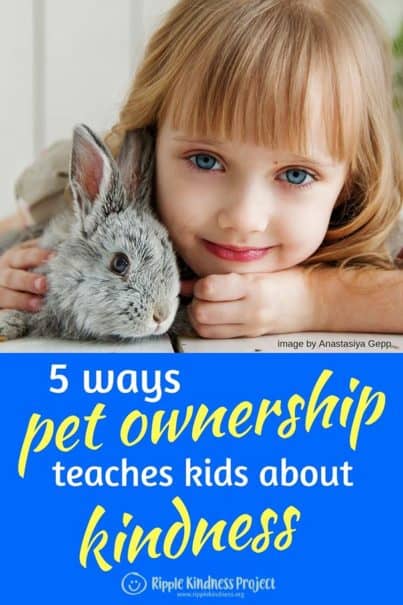The debate surrounding pet ownership teeters between the noble benefits it promises and the ethical dilemmas it presents. The question, “Is keeping pets a kindness or a cage?” encapsulates the paradox of domestication—a relationship that can be enriching yet fraught with moral considerations.
At the outset, pet ownership often emerges as a seemingly altruistic endeavor. Pets can serve as companions, imbue comfort, and contribute to emotional well-being. The presence of a pet can alleviate symptoms of anxiety and depression among individuals across all demographics. A study published in various psychological journals underscores the capacity of animals to forge profound emotional connections with humans, fostering a sense of responsibility and mutual care.
However, the kindness inherent in pet ownership is laced with ethical complexities. The act of domestication fundamentally alters the natural behaviors of animals. Animals that thrive in the wild—be it a golden retriever or a common house cat—are subjected to environments that may constrain their natural instincts. While it is easy to romanticize the idea of a pet being part of a family unit, it is imperative to interrogate whether this domesticated existence serves the best interests of the animal or simply fulfills human desires.
The conversation pivots when one considers the notion of autonomy. Animals, once taken into captivity, relinquish crucial elements of their independence. Consider the lives of dogs in a modern household. They are often confined to homes, their movements dictated by their owners. The concept of freedom becomes a distant memory, raising an ethical dilemma: does the comfort provided by human companionship outweigh the loss of autonomy? Is the cage—be it metaphorical or literal—simply disguised by the affection and care lavished by owners?
Furthermore, the variability of pet ownership practices casts a shadow over the ethical landscape. Not all pet owners embody the concept of kindness. Neglectful or abusive environments yield a stark contrast to those that nurture and cherish animal welfare. The plight of neglected pets reveals a grim reality: countless animals suffer from inadequate provisioning, exercise deprivation, and social isolation—the very antithesis of kindness.
This brings to light the importance of education and awareness in the realm of pet ownership. Responsible pet ownership is not merely a badge of honor but a continuous obligation. It entails understanding an animal’s needs—both physical and psychological. Fostering an environment that respects and nurtures an animal’s instincts is crucial. This includes providing an appropriate amount of space, social interaction, and mental stimulation. The ethical responsibility extends beyond merely adopting a pet; it encompasses a commitment to lifelong care and advocacy for the animal’s well-being.
The model of a loving pet owner must evolve to embody more than mere companionship. It requires an acknowledgment of the species-specific needs and preferences of each breed or species, thereby prioritizing animal welfare over consumerist tendencies that often dominate the pet industry. For instance, high-demand breeds are frequently subjected to unethical breeding practices to fulfill human notions of beauty or companionship. This not only compromises the animals’ health but perpetuates a cycle of exploitation.
Adopting a pet should not merely reflect a passing curiosity or the whims of an individual. Instead, it should arise from a well-informed and conscious decision. The ethics of pet ownership compel prospective owners to reflect on the impact of their decisions. They must consider the full spectrum of consequences—not only the joy of companionship but also the weighty responsibilities that accompany animal care.
Moreover, alternatives to traditional pet ownership are gaining traction, presenting novel ways to engage with animals that may circumvent the ethical pitfalls. Initiatives like fostering, animal sanctuaries, and volunteering at shelters allow individuals to interact with animals without the prolonged commitment that full ownership entails. These paths honor animal autonomy while still fulfilling the human desire for connection. They reflect a philosophy that prioritizes the welfare of the creature over simplistic notions of ownership.
As society continues to grapple with the nuances of the human-animal relationship, the ethical discourse surrounding pets remains paramount. It is a conversation that encourages the exploration of our intrinsic values and the impact of our choices on other sentient beings. Pivotal questions arise: Can we alleviate animal suffering while still enjoying their companionship? How can we strike a balance between human affection and animal autonomy?
Ultimately, pet ownership presents an intricate web of compassion and responsibility. The kindness offered through companionship can uplift and heal. Yet, it must be tempered with an awareness of the responsibilities it brings. When examined through a critical lens, the relationship between humans and their pets morphs into more than just kindness—it showcases a complex interplay of ethical considerations, challenging society to continually refine its understanding of animal welfare.
In conclusion, the choice to own a pet is laden with profound implications. It is not merely a transaction but a reciprocal relationship built on ethical stewardship. By navigating this intricate balance, society has the opportunity to elevate the discourse surrounding animal rights and welfare, redefining what it means to be a truly compassionate guardian and ensuring that the kindness expressed in this relationship does not become a cage for those we cherish.







